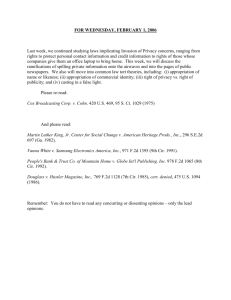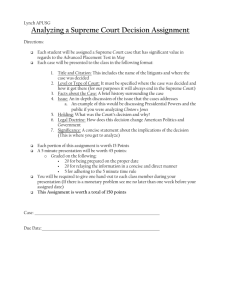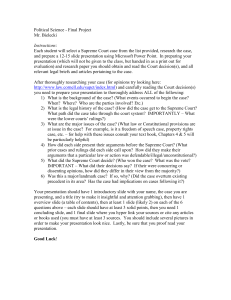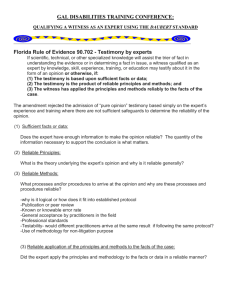Background on Friedrichs v. California Teachers Association
advertisement
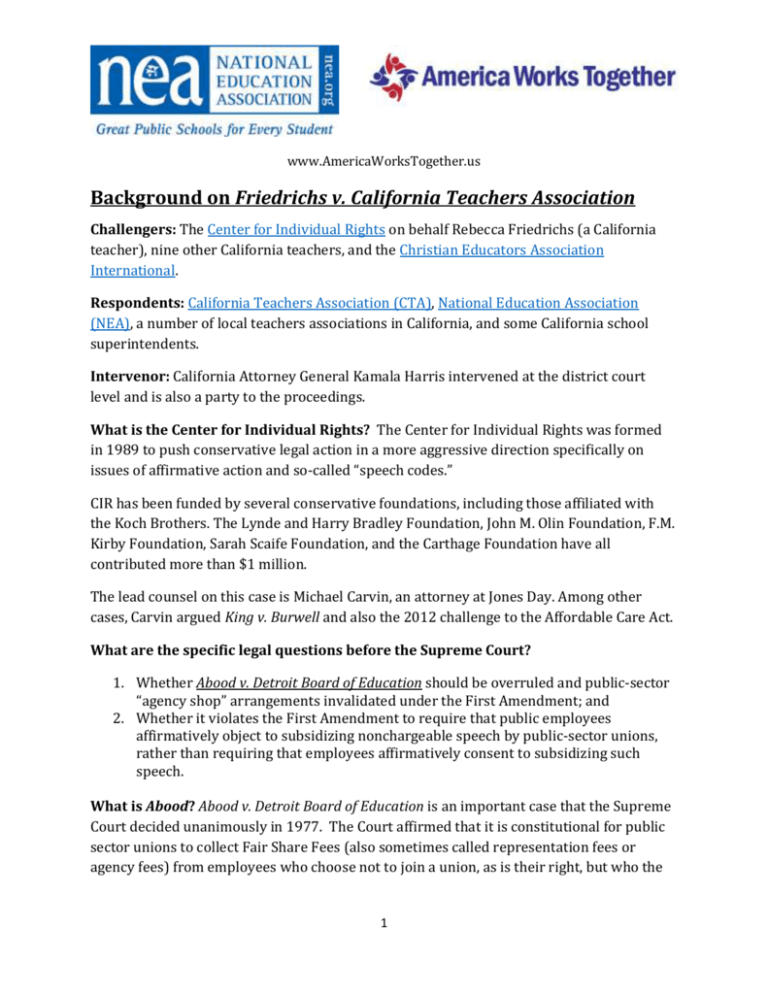
www.AmericaWorksTogether.us Background on Friedrichs v. California Teachers Association Challengers: The Center for Individual Rights on behalf Rebecca Friedrichs (a California teacher), nine other California teachers, and the Christian Educators Association International. Respondents: California Teachers Association (CTA), National Education Association (NEA), a number of local teachers associations in California, and some California school superintendents. Intervenor: California Attorney General Kamala Harris intervened at the district court level and is also a party to the proceedings. What is the Center for Individual Rights? The Center for Individual Rights was formed in 1989 to push conservative legal action in a more aggressive direction specifically on issues of affirmative action and so-called “speech codes.” CIR has been funded by several conservative foundations, including those affiliated with the Koch Brothers. The Lynde and Harry Bradley Foundation, John M. Olin Foundation, F.M. Kirby Foundation, Sarah Scaife Foundation, and the Carthage Foundation have all contributed more than $1 million. The lead counsel on this case is Michael Carvin, an attorney at Jones Day. Among other cases, Carvin argued King v. Burwell and also the 2012 challenge to the Affordable Care Act. What are the specific legal questions before the Supreme Court? 1. Whether Abood v. Detroit Board of Education should be overruled and public-sector “agency shop” arrangements invalidated under the First Amendment; and 2. Whether it violates the First Amendment to require that public employees affirmatively object to subsidizing nonchargeable speech by public-sector unions, rather than requiring that employees affirmatively consent to subsidizing such speech. What is Abood? Abood v. Detroit Board of Education is an important case that the Supreme Court decided unanimously in 1977. The Court affirmed that it is constitutional for public sector unions to collect Fair Share Fees (also sometimes called representation fees or agency fees) from employees who choose not to join a union, as is their right, but who the 1 www.AmericaWorksTogether.us union is legally required to represent in negotiations with the employer. That case also involved teachers and a teachers union. What are Fair Share Fees? Everyone can choose whether or not to join a union at work, and nothing in this case will change that. When the majority of people vote to form a union, however, the union is required by law to represent everyone in the workplace, whether that employee is a union member or not. As all public employees enjoy the benefits, job security and other protections the union negotiates, it is only fair that all employees contribute to the cost of securing those benefits and protections. Timeline: April 29, 2013: CIR files suit in the U.S. District Court for the Central District of California. December 5, 2013: The district court grants CIR’s unusual request to rule against CIR and in favor of the unions. This meant that there was no trial or discovery process, which CIR sought to avoid to get the case up to the Supreme Court as quickly as possible. June 30, 2014: Supreme Court rules in Harris v. Quinn that fair share fees may not be required of home care workers because they are not full public employees, but declines to overrule Abood. November 18, 2014: The Ninth Circuit Court of Appeals grants CIR’s motion requesting that that court expeditiously affirm without argument the district court’s ruling in favor of the unions. CIT sought such expedited treatment in order to get the case to the Supreme Court as quickly as possible. January 26, 2015: CIR files cert petition asking the Supreme Court to take up the case. June 30, 2015: The Supreme Court agrees to hear Friedrichs v. CTA. 2
